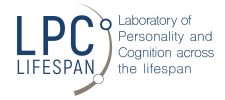A sense of purpose in life is the belief that one’s life and activities are goal-oriented, directed, and worthwhile. Greater purpose is associated with better cognitive outcomes across adulthood: People who feel more purposeful perform better on cognitive tasks, have less cognitive decline, are less likely to develop mild or severe cognitive impairments, and, even after diagnosis, have fewer behavioral and psychological symptoms of dementia. The reasons why purpose leads to these better outcomes are not yet known. The purpose of this project is to use ecological momentary assessments (EMA) to identify daily mechanisms responsible for the association between purpose in life and healthier cognitive outcomes.

Project PEEL: Purpose and Engagement in Everyday Life
Purpose
We are doing this research to better understand cognition in daily life and how a sense of purpose is related to maintaining memory and other cognitive functions with age.
Relevant Publications
- Sutin, A. R., Aschwanden, D., Luchetti, M., Stephan, Y., & Terracciano, A. (2021). Sense of purpose in life is associated with lower risk of incident dementia: A meta-analysis. Journal of Alzheimer’s Disease, 83, 249-258. DOI: 10.3233/JAD-210364
- Sutin, A. R., Luchetti, A., Stephan, Y., Strickhouser, J. E., Terracciano, A. (2022). The association between purpose/meaning in life and verbal fluency and episodic memory: A meta-analysis of >140,000 participants from up to 32 countries. International Psychogeriatrics, 34, 263–273. Doi: 10.1017/S1041610220004214.
- Sutin, A. R., Luchetti, M., Aschwanden, D., Lee, J. H., Sesker, A. A., Stephan, Y., & Terracciano, A. (2022). Sense of purpose in life and concurrent loneliness and risk of incident loneliness: An individual-participant meta-analysis of 135,227 individuals from 36 cohorts. Journal of Affective Disorders, 309, 211-220. Doi: 10.1016/j.jad.2022.04.084
Funding
AG074573 (National Institute on Aging)
Key Information
Duration
Taking part in our study will last approximately 6 hours over 8 days for the first assessment and about an hour for the follow-up assessment in 2-3 years. The 6 hours includes a virtual interview, a survey, and brief surveys to complete several times a day for 8 days.
Research Activities
You will first complete a virtual interview with study staff. Then you will be asked to complete an online survey that will ask you about your health and well-being. Then, every day for 8 days, you will be asked to complete brief surveys through an app on your smartphone to report on your current mood and activities. These surveys will also include brief tasks that measure processing speed (how fast you are able to respond).
Eligibility
Adults 40-64 years old and adults 65 and older either feel their memory is declining or who feel their memory is not declining.
Risks
The risks or discomforts to you of taking part in this study include discomfort with some of the measures and potential loss of confidentiality. If you feel discomfort or any distress or boredom, you can stop at any time. We take every precaution to maintain confidentiality of the information you report.
Benefits
As a result of taking part in this research, you are unlikely to benefit directly from participating. This research, however, will help us better understand cognitive function across midlife and older adulthood and will help to inform future interventions to help adults maintain their cognition and reduce risk of Alzheimer’s disease and other dementias.
For More Information
To find out more information, please email our study coordinator at [email protected] or leave a message at 850-645-9555. You can also fill out our contact form.



